Vendors are an essential aspect of everything that happens at locations of care, and like any healthcare professional, they must be properly credentialed to act upon their duties. However, whether or not a vendor interacts directly with patients or patient data has no bearing on their status as a vendor. Anyone who is a provider, manufacturer, or supplier at a location of care qualifies as a vendor.
A vendor credentialing system ensures only vendors who meet local and national rules and regulations have access to hospitals and other healthcare facilities. Given the sheer volume of vendors who supply services and products to locations of care, an easily updated, digitized vendor credentialing system is essential to safeguard patients, healthcare employees, and facility resources.
What is Vendor Credentialing?
Vendor credentialing describes the ongoing process hospitals and healthcare facilities use to verify that third-party suppliers and their sales representatives meet all the training, certification, and immunization requirements needed to be near patients or work on site.
A hospital’s supply chain department typically takes point on vendor credentialing, but anyone who oversees facility access or maintains vendor relationships can play a role in the credentialing process. Only after meeting all credentialing requirements are vendors and their products or services allowed access to the facility.
Each location of care will have its unique vendor credentialing requirements. At a minimum, a vendor credentialing system requires the following:
- Verification of employment
- Training and certifications
- Vaccines (including COVID-19, Influenza, Hepatitis B, MMR, Tdap, and Tetanus)
- Drug screening results
- Current PPD (tuberculosis) test results
- Background checks at the local, state, and federal level
- Insurance coverage
- HIPAA compliance certification
- All relevant safety training
Why Do Hospitals Credential Vendors?
Hospital Vendor credentialing is needed to protect both patients and the facility. Failure to meet regulatory standards can hurt patient health outcomes, negatively impacting a location of care’s reputation, legal standing, and financial standing. Fines for lack of vendor compliance, for instance, directly impact community trust in a hospital.
Why Vendor Credentialing Is Important in Healthcare
Vendor credentialing resolves several important healthcare issues:
- A vendor credentialing system keeps locations of care up-to-date on all requirements for vendor services and products.
- Credentialing lowers the risk of Commercial Multiple Peril liability by preventing the location of care from hiring or doing business with excluded individuals.
- Vendor credentialing checks vendors against the Department of Health and Human Services’ Office of the Inspector General’s List of Excluded Individuals and Entities.
- Vendor credentialing systems help healthcare facilities meet the requirements of different regulatory bodies while understanding how each body’s overlapping requirements and functions impact locations of care.
- All vendor credentialing must be documented, securely stored, and easily accessed.
- Vendor credentialing systems reduce the risk of miscommunication between different facility departments when dealing with vendors.
- Credentialing streamlines supply chains, allowing healthcare facilities to respond quickly to supply interruptions by accessing pre-credentialed backup vendors.
What Are the Benefits of Vendor Credentialing?
Vendor credentialing provides advantages for both locations of care and vendors. For healthcare facilities, vendor credentialing provides the following benefits:
- Improves patient health outcomes.
- Safeguard patient safety, including physical safety, data protection, and confidentiality.
- Maintains compliance with all government and private healthcare rules.
- Higher standards of care.
- Better positioned to be of service to the community.
For vendors, a hospital vendor credentialing system also provides benefits:
- Sales reps can visit facilities confident that everyone onsite follows the same guidelines.
- Compliance requirements guide where vendors should concentrate sales and marketing efforts.
- Credentialing requirements influence which training or certifications to offer to sales reps.
- Credentialing systems allow vendors to meet entry requirements to different locations of care.
- Prevents redundancy when working with facilities with similar credentialing requirements.
- Allows quick access to facilities for credentialed vendor staff.
Final Thoughts on Vendor Credentialing
A robust vendor credentialing system is essential for any location of care — failure to comply with regulatory requirements results in fines, diminished patient care, loss of facility reputation, and even liability lawsuits. IntelliCentrics offers a fully digitalized vendor credentialing program that maintains an up-to-date database of all vendors who visit your location of care, alerting you to any compliance issues and ensuring that every vendor who enters your facility has the right to be there.
Contact us for more information on how we can help you manage the demands of credentialing vendors, their sales representatives, and their products and services.




